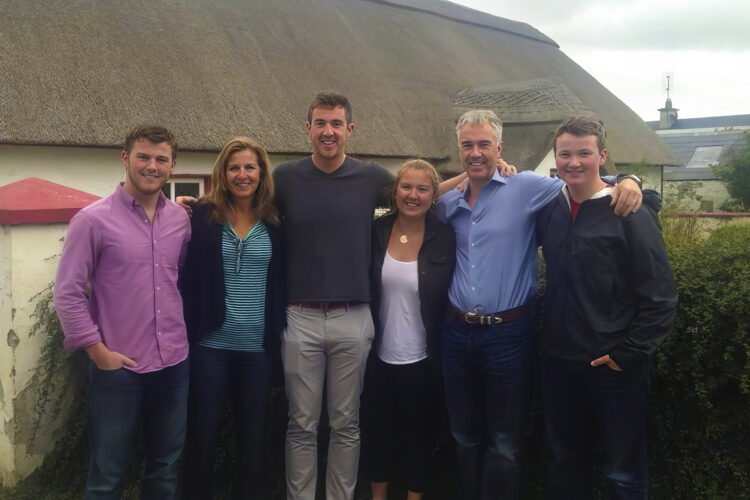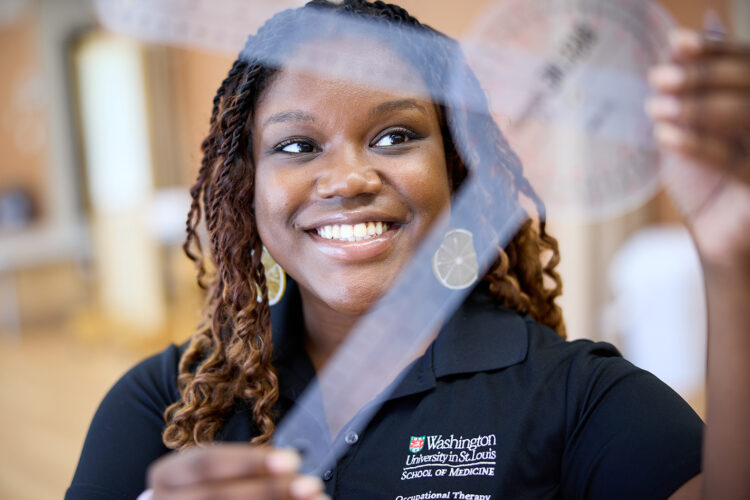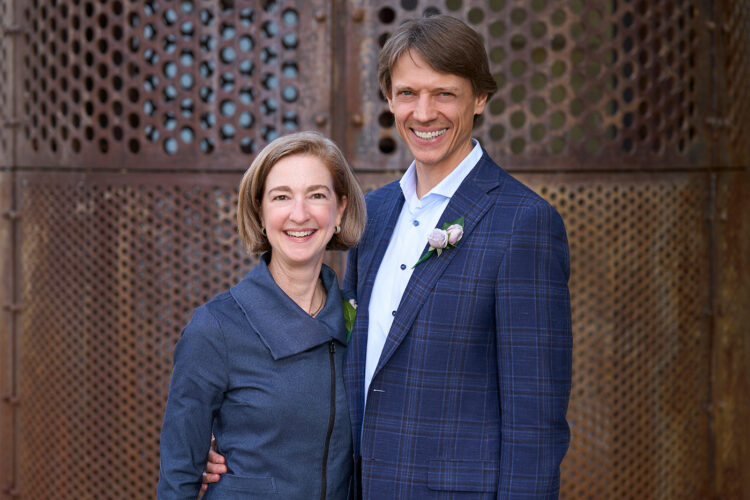James “Russ” Hornsby and Sherry Hornsby’s business is play. Gregory Lanza, MD, PhD, is a cardiologist who conducts groundbreaking research at Washington University School of Medicine in St. Louis. Together, this unusual trio is forging new pathways to healthier lives for people around the globe.
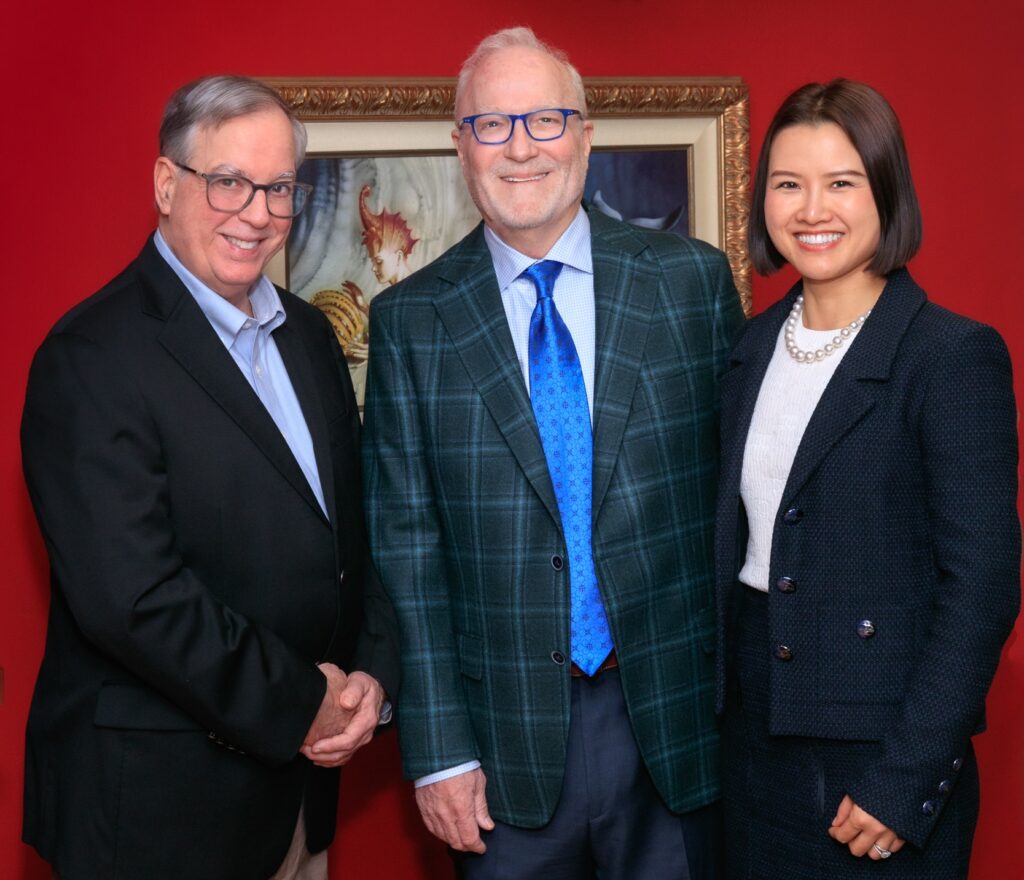
Last November, the Hornsbys pledged $250,000 to support Lanza and his collaborators’ efforts in the areas of cardiac imaging and cancer nanomedicine. The unrestricted gift, which provides flexible funding not available through other sources, is playing a key role in driving innovative work and speeding the delivery of life-saving technologies to vulnerable patients.
“Simply put, we would not be where we are today without the Hornsby gift,” Lanza says. “And we plan to multiply its value by translating our advances into new tools and treatments that will transform clinical standards of care.”
Russ Hornsby, founder and CEO of St. Louis-based toy company Cepia LLC, believes Lanza can achieve that goal. “Greg is special,” he says. “We invest in him because we have confidence in his ability to improve human health.” Sherry also appreciates Lanza’s willingness to explain his research and provide updates. “He is a brilliant man and a wonderful scientist.”
Entrepreneurial spirit
The Hornsbys’ relationship with Lanza predates their latest gift to the university. In 2017, Lanza was installed as the James R. Hornsby Professor of Biomedical Sciences at the medical school, a position established through a $2 million endowment created by Russ in 2012.
Acknowledged as a pioneer in the toy industry, Russ quickly recognized Lanza, who holds 38 patents, as a fellow innovator. Russ himself helped develop 33 patents. Several of his inventions propelled the creation of Zhu Zhu Pets, a blockbuster line of plush robotic hamsters introduced in 2009. The company’s most recent product launches include Decora Girlz — fashion dolls inspired by the Hornsbys’ 5-year-old daughter, Summers — and the marine-themed Zhu Zhu Aquarium, featuring plush robotic fish.
“Russ and I connect on a personal level because we are very much alike,” Lanza says. “His creativity and energy are infectious. He inspires me, and I think he is excited by the potential of our work.”
One promising project supported by the Hornsbys aims to simplify cardiac MRI and make it more accessible in developing countries, where rates of cardiovascular disease are high. The technology, which captures detailed pictures of a beating heart, requires highly skilled technicians to administer testing and interpret results. Lanza’s team is collaborating with imaging and radiotherapy equipment company United Imaging Healthcare to design a scanner that uses artificial intelligence to automate the process.
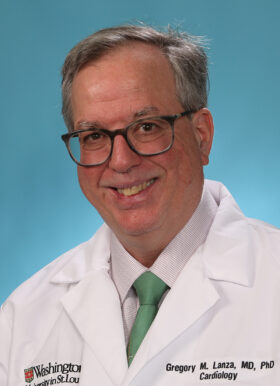
“Once the automation is completed and validated at WashU, the technology will be transferred to a hospital in Ethiopia,” Lanza says. “Then the university’s Global Health Center will guide providers there in its use. Ultimately, we want to replicate this project in other countries as well.”
As WashU investigators incorporate cardiac MRI into cutting-edge diagnostic and treatment protocols for conditions such as heart arrhythmias, partner institutions in these countries could join in clinical trials, dramatically increasing the availability of new treatments in underserved regions.
Funding from the Hornsbys also has helped fuel efforts to target drug-resistant cancers using nanoparticles, microscopic particles that can be engineered to carry chemotherapy directly to cancer cells. Lanza, along with Katherine Weilbaecher, MD, the Oliver M. Langenberg Distinguished Professor of the Science and Practice of Medicine, and other medical school colleagues, has demonstrated the efficacy of this approach in treating breast cancer that has spread to bone. Their studies in mice led to an agreement to develop the technology for humans.
“Because of the Hornsbys, we have been able to license this nanoparticle platform to a company that will be able to scale the project,” Lanza says. “We believe this will transform what is possible for patients with this difficult-to-treat form of cancer.”
Providing opportunity
The Hornsbys’ relationship with Washington University extends beyond their gifts. Russ’ daughter Ashley Hornsby earned a Bachelor of Fine Arts from the art school in 2004. And Sherry currently is studying integrated marketing at the university. Their philanthropy reflects a desire to give back to WashU and enhance the institution’s impact in St. Louis and the world.
For Lanza, the couple’s generosity represents more than just financial support. He says the Hornsbys have fortified his ability to achieve success in work that he loves. He cites a quote from Joseph Campbell, the well-known American author who wrote about the power of myth, to describe their role in his research.
“Campbell said, ‘Follow your bliss, and the universe will open doors where there were only walls,’” Lanza says. “The Hornsbys have opened doors for me. I am honored they have given me this opportunity.”
